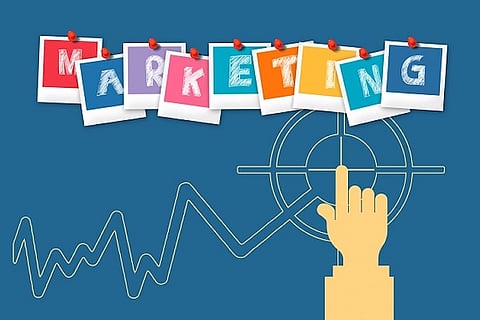

Consumer behaviour and marketing psychology have changed the way that marketing has conducted business for generations. From peer-reviewed studies to field operational experience, research has always benefitted marketing in some way or the other. Marketing is the one field, where industry players take research very seriously, and allow it to impact operations based on qualitative results. Marketing was the first industry to introduce eye-tracking and neuro-imagining, and also the first one to market the ill-effects of certain drugs through clinical trials. From medicine to nutrition, marketing has allowed multiple industries to flourish on the backs of strategic consumer research and behavioural analysis.
Decision Making
We may think that we act one way, but we truly behave in another manner completely. Baba Shiv, marketing researcher at Stanford University believes in the power of emotions over rational thoughts.
“The rational brain is not good at being rational. It in fact is good at rationalizing what our emotional brains are trying to tell us in decision making. Basically, the human brain has got two separate instinctual systems that guide our preferences and behaviours. The liking system codes for pleasure in real time – for instance I’m chatting with you right now, and I’m enjoying myself, and I have a liking system that is coding for that pleasure. This liking system registers what we call the reward value associated with something. The wanting system records the reward value indicated by the liking system, and then tends to shape my subsequent experiences.”
Baba Shiv and his colleagues have done some incredible work in the field of neuro-economics and decision making. Their incredible research has opened our eyes to marketing of emotions, rather than rationality or facts. This instance is important and when applied to B2B it’s even more, as more decisions are made through gut-feeling than facts alone.
Dopamine and Neuro-receptors
Stunning work by Dr Robert Sapolsky and others have opened chambers of thought that were previously unknown to marketers. Marketers thought that a certain product or service has a feeling of positive emotions upon receiving it in full quality. However, Kickstarter and subscription services have long demolished that notion, and have studied how dopamine really works in the brain. The excitement of fulfilling the inner needs is much more than being fulfilled. That’s why promises feel great, and broken promises feel worse.
Brands like Apple and Tesla, often keep the best surprises for the last and convert the most eager of customers into lifetime brand advocates. They’ve effectively mastered the fact that anticipation and action are strong drivers of purchase and intent.
In a research study conducted on monkeys, when the rewards system had a 50-50 chance of gaining v/s losing, the monkeys had a baseline dopamine reaction. However, when “uncertainty” was introduced, the dopamine shot up and the monkeys were more inclined to perform work for reward. Strategists call this the “zone of uncertainty” and it’s the best source of consumer action that is available in the market right now.
Compensatory Behaviour model
Dr Galinksi and others at Columbia University have created effective consumer models that showed how we buy things based on how we want to appear to our “future selves”. The drive to purchase an item with a value (beyond that of functionality) comes with how we want our future selves to be. This explains why people buy certain brands over others, and purchase expensive vehicles when they don’t really understand its performance metrics. The compensatory model explains the “greater self” feeling that you get after you purchase a Mac, or go to an expensive concert. You feel like a better person.
That feeling of a better person, is something that Apple uses time and again in its communications. By inspiring you to imagine a better future, Apple invites you into its community of better selves. The rational self might be inclined to think that there may not be a better future with the product in your hands, but your greater self says otherwise. This has changed the way all brands do marketing, and created a plethora of brands that want to create a cult around their campaigns.
Growth Mindset
Dr. Carol Dweck and others have uncovered the power of the growth mindset. People feel great when they’re in a mindset which induces positive future outcomes. Eg. if a brand functions on the idea that your future is better off with the product in your hands, you may be more inclined to go towards that growth mindset feeling. Brands have made themselves “futuristic” and “idealistic” trying to get people to take action by becoming more active in their minds.
Brands that can inspire people to switch towards the growth mindset route have seen multiple advantages over those that can’t. There are industries in the B2B space that have been wiped out clean, because startups came up with ideas that far surpassed theirs. When the brand communicates in a way that accesses the growth mindset phenomenon in their minds, they can tap into an infinite void of possibilities. You can easily lure a customer into your paradigm with the help of great “growth mindset” marketing.